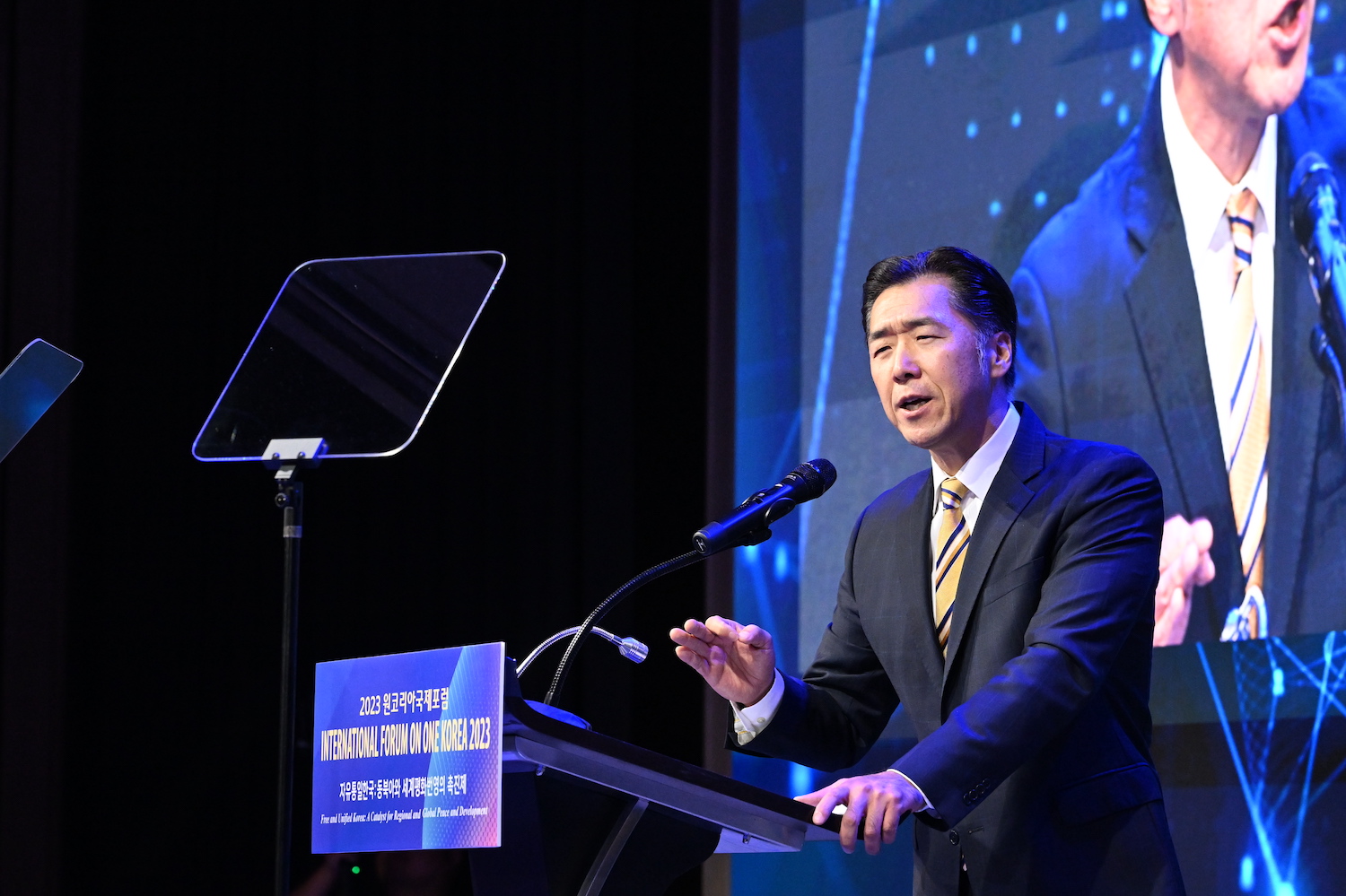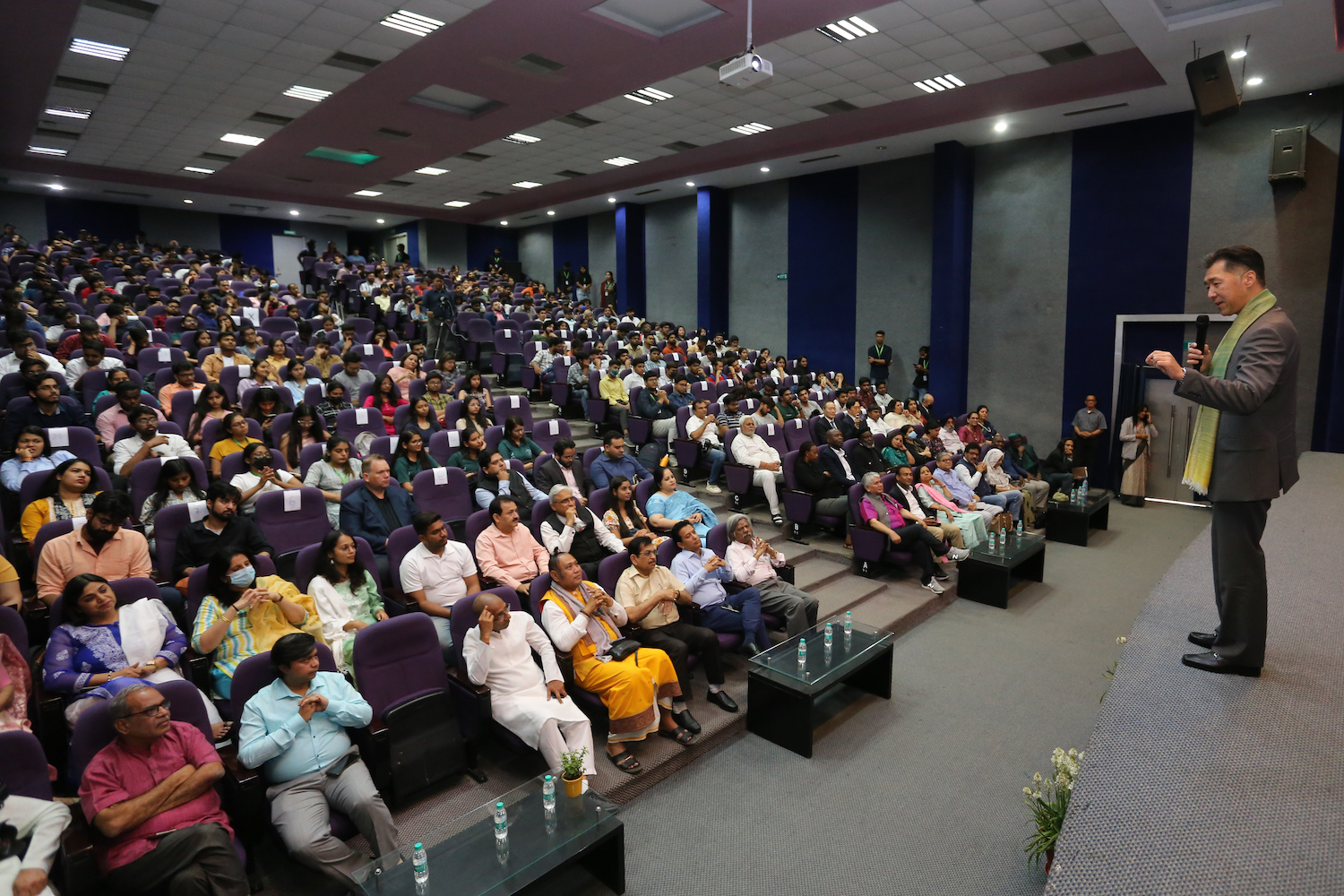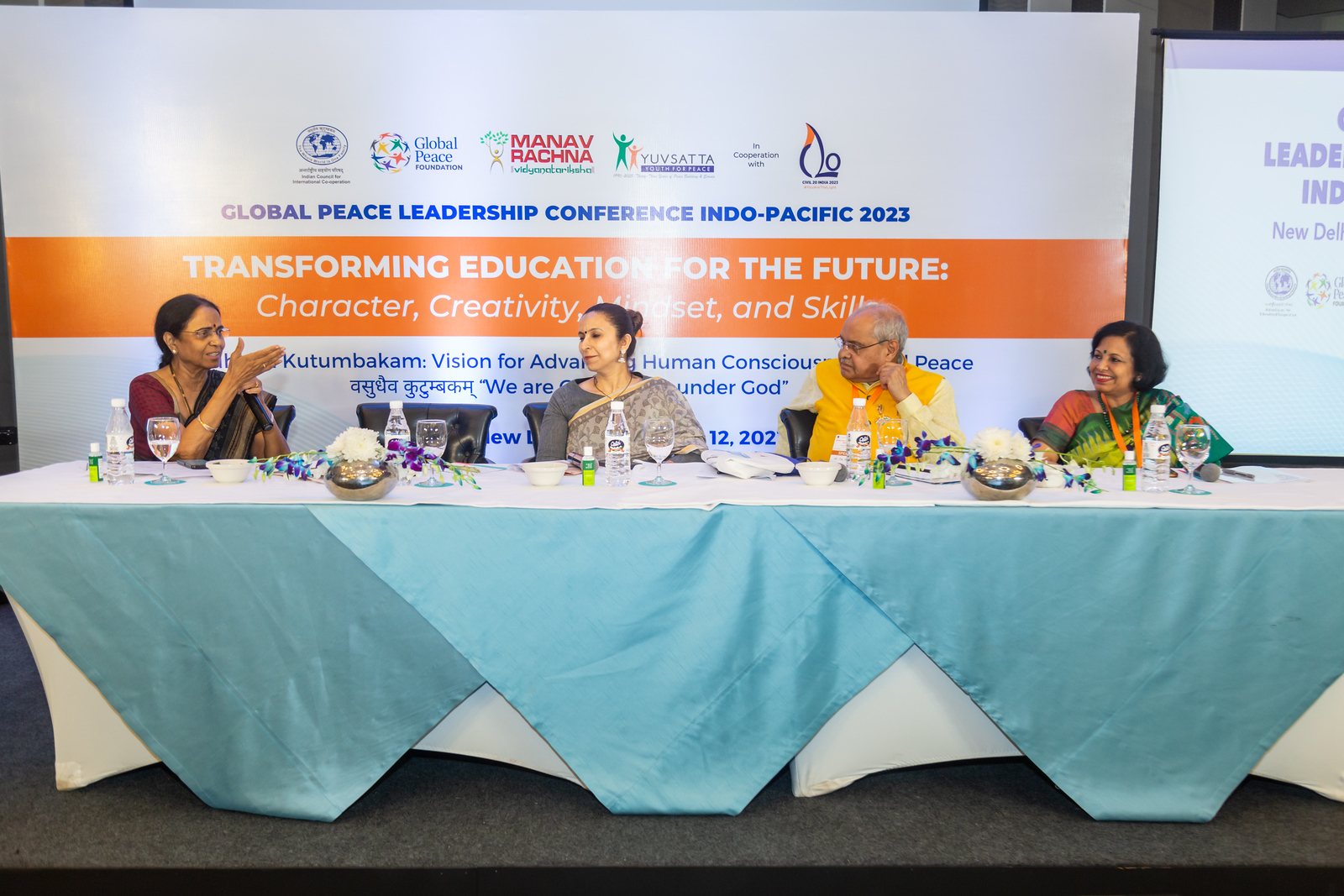Zanzibar, Tanzania | July 21 – 24, 2015
“Promoting Peace, Security and Sustainable Development in East Africa”
Excellencies, distinguished leaders, and honored participants,
It is an indeed an honor to participate in this very meaningful and relevant Global Peace Leadership Conference and Youth Summit here in Zanzibar. I want to sincerely thank our hosts, H.E. Amani Karume, the former president of Zanzibar, and the Revolutionary Government of Zanzibar, with H.E. President Ali Mohamed Shein represented by the Second Vice President, Hon. Ambassador Seif Ali Iddi.
We also greatly appreciate our co-conveners, the East African Community with special thanks to Amb. Richard Sezibera, its Secretary General; as well as IGAD – the Intergovernmental Authority on Development represented by Ambassador Tewolde Gebremeskel Redda and Mr. Richard Barno of CEWARN.
Our convening here is very meaningful, as it takes place in a cradle of ancestral human development dating back more than 3 million years. Also historically, Zanzibar has served as a bridge between East Africa and the Middle East. As a midway point between Africa and Asia, and as a place central to commerce, tourism and communication, Zanzibar has had a long history of pluralism, adaptation and tolerance.
That legacy provides a significant context for the crucial issues that we are addressing. Africa is rising in significant ways that hearken to the great promise of its diverse peoples and abundant natural resources. At the same time, East Africa has become a focal point of a global crisis of violent extremism and radicalization of youth.
Globalization brings us into close contact with people different than us. While that affords us a rich opportunity, it also can lead to serious identity-based conflicts. When such conflicts are framed in religious terms, fueled by extremist interpretations, and rapidly broadcast through worldwide social networks, the threats can escalate with global implications.
The challenge of extremism is complex and alarming. Certainly circumstances of poverty, and lack of opportunity foster environments of despair that can lead to extremism. But it is also becoming increasingly clear that the roots of this problem are more fundamental, touching on core issues of identity and meaning. The deeper nexus of this problem has been recognized by a growing number of analysts. For example, the current edition of the weekly news and commentary magazine, The Economist, includes an article entitled “Africa’s Jihadists,” which notes that,
“The biggest threat to African peace and prosperity comes from a dangerous idea…Increasingly what drives African extremism is not just opportunity or firepower but ideology… a distinct flavor of poisonous thinking has spread across thousands of miles. Islamism is the continent’s new ideology of protest.” The Economist, July 18, 2015
Self-awareness, understanding, and meaning are central to the human experience. At the core of every person, and indeed of human history, has always been the question of identity: “who am I?” and “who are you?” What is the innate value of a human being and how ought any person be treated?
How one responds to these questions significantly impacts one’s behavior. The worst atrocities in human history were most often perpetrated by people who perceived their own group as superior to others in thought or form. When we focus on differences, we may say, for example, that:
I am white, you are black.
He is Christian, she is Muslim.
I am American, you are Zanzibari.
Conflicts are often fueled by a false or limited perception of our own identity. We trust or mistrust others based on tribal or ethnic origins, the religion they practice, or the color of their skin. But these can become limited, shortsighted “markers” of identity if we allow them to hinder our sense of our true and most essential identity; the one that is shared by all humanity. A global consensus is urgently needed to uplift the essence of our common humanity, and to affirm the universal values necessary to sustain a diverse yet harmonious world of freedom and peace.
It is our conviction that all people – regardless of race, religion, ethnicity or station in life – share a common essence and heritage – our “humanness” extends beyond even our most pronounced external differences. We are all part of the one human family. And we are one family because we all share a common origin, the Creator God. Thus, we at the Global Peace Foundation believe that a simple yet powerful vision statement that can inspire our common effort to build a world of sustainable peace – is One Family under God.
The essence of our humanity, individually and collectively – and the essence of life itself – is intangible and spiritual in nature. We understand that every person has value, has worth. That is why we make great efforts to save even one human life.
While many turn to political, economic or military power to solve problems, it is the transformative power of the human spirit that calls forth the noble qualities of our character and can overcome even the most serious obstacles.
We honor Madiba, the late founding President Nelson Mandela, because he embodied and championed these values not only for South Africa but the entire world. In fact his birthday this month has been commemorated by the Africa Peace Service Corps and around the world as a day of service.
Looking around this room, I feel great hope that Africa can meet the serious challenges it now faces, and can make dramatic advances. You have tremendous spiritual and moral resources already at hand. The traditional culture of East Africa remains strong, and the emphasis on the extended family and community, helps to nurture the values of cooperation and mutual respect. Spirituality is deeply rooted here and is a natural part of daily life.
Such spiritual resources are key to forging a shared identity that transcends tribal, ethnic, and religious differences. The shared values contained within them are the foundation for substantiating the motto of the East African Community – One People, One Destiny. And the commitment to make that vision a living reality – One People, One Destiny (Tafsiri ukurasa huu) – provides purpose and motivation of the highest order.
This is the context in which we are convening this Global Peace Leadership Conference here in Zanzibar, engaging diverse leaders and multi-sector partners in formulating and advancing concrete practical solutions to the urgent issues we face. The key areas we will focus on are:
- Faith leaders in East Africa are already doing impressive inter-religious work, including establishment of an EAC inter-religious council as articulated in the Kigali Declaration of 2014. Our partner, the Inter-Religious Council for Peace Tanzania, together with other interreligious council representatives, are meeting during this GPLC to develop strategic plans and action steps based on the framework of the Kigali Declaration.
- The Youth Summit convening here today will address youth radicalization through first emphasizing our common humanity and deep interconnectedness, along with youth entrepreneurship and service. It is from these universal principles that we can foster practical yet holistic solutions to a growing spiritual crisis.
- The East Africa Business Roundtable will address the “nexus of business and peace” – because true prosperity can only be secured through intentionally promoting opportunity for all. Leaders from multiple sectors will build and strengthen partnerships for collaborative action toward that end. We appreciate IGAD taking the lead in organizing this roundtable.
- I also want to call special attention to the work of the Africa Leadership Mission for Peacebuilding, Young Leadership and Service; now, more than ever, we need to tap the wisdom, authority and experience of elder statesmen and notable leaders from across the region together with the power of youth and faith leaders.
Distinguished participants:
We must challenge the culture of conflict and corruption – not simply by responding to conflict, but through working toward a larger vision that resonates with the highest of our human aspirations.
When we place our noblest ideals at the heart of all our human endeavors – from politics, economics, governance, education, etc. – the fullness of our human potential can emerge. The incredible developments we have experienced in the past century are small compared to what we can accomplish when we do away with the walls of fear, mistrust, and blind ignorance that have kept us apart.
Let us use the opportunity of this convening as a catalyst for action based on common purpose, that together we can build an Africa that is truly One People with One Destiny. In doing so you will also create a shining example to the world that we can all live as One Family Under God.
Asante sana. Thank you.



